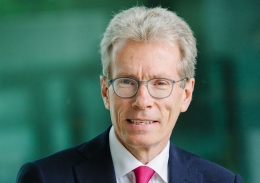UNSW researchers awarded $4.3m in latest ARC funding round
Research in engineering, environmental science, psychology and built environment are among projects selected for ARC Linkage Grants.
Research in engineering, environmental science, psychology and built environment are among projects selected for ARC Linkage Grants.

UNSW Sydney researchers have secured more than $4.3 million for nine projects across various disciplines in the latest round of Australian Research Council (ARC) Linkage Grant funding.
In collaboration with industry partners, this funding will support projects in areas including smart agriculture communications, wastewater treatment, ecosystem protection, psychological wellbeing of refugees, and an analysis of the works of Charlotte Brontë.
Federal Education Minister Simon Birmingham announced $26 million in ARC funding supporting 66 research teams. UNSW secured $4.3 million, the largest share of funding among NSW universities, and second-largest in the nation behind the University of Queensland.
Professor Nicholas Fisk, Deputy Vice Chancellor (Research) at UNSW, said the funding confirmed the strength of the University’s research.

Deputy Vice-Chancellor (Research) Professor Nicholas Fisk received a Member of the Order of Australia in the 2020 Queen's Birthday Honours.
“This is a fantastic outcome for UNSW,” said Fisk. “From the 2017 Linkage Project round UNSW’s share was $9.2 million, placing us first in the Go8 and in the nation. These linkage grants are crucial to fostering collaboration between universities and domestic and international end users including industry and government - for 2017 this involved in-kind and financial support for UNSW research from almost 50 external organisations valued at $22.2 million.”
Among the largest ARC Linkage Projects grant announced was $739,083 to Dr Angela Nickerson, a lecturer at the School of Psychology and Director of the Refugee Trauma and Recovery Program. She will lead a team investigating the pathways to settlement for displaced refugees. The goal of the project is to significantly advance understanding of the psychosocial impact of displacement and inform service provision in supporting the tens of millions of refugees exposed to sustained displacement worldwide.
Professor Klaus Regenauer-Lieb from the Faculty of Engineering received a $660,000 grant for thermodynamics inversion for mineral systems. This project aims to develop a new scientific approach to the Australian Lithospheric Architecture Magnetotelluric Project (AusLAMP). AusLAMP provides geophysical information aimed at unravelling the tectonic history of the Australian continent and its mineral potential.
Another large grant ($613,000) was awarded to Professor Jinhong Yuan from the School of Electrical Engineering and Telecommunications to develop reliable communications channels for agricultural areas with difficult terrain. The project will contribute to the crucial communication infrastructures for smart farms, which will lead to higher agricultural productivity and national economy.
Chemical Engineering Scientia Professor Rose Amal received a $562,000 grant for a project that will enable the timely treatment of industrial waste water, as well as sewage treatment plant effluents using simple and cheap catalyst materials.
Other successful UNSW researchers include: